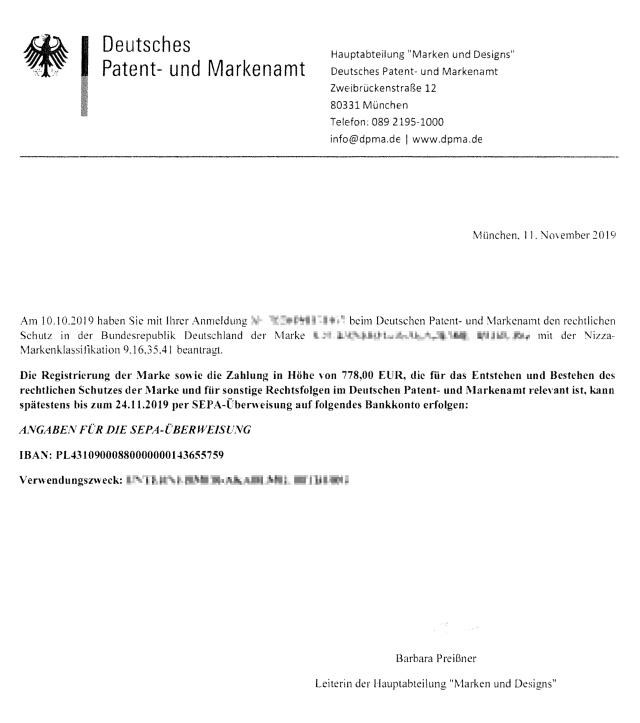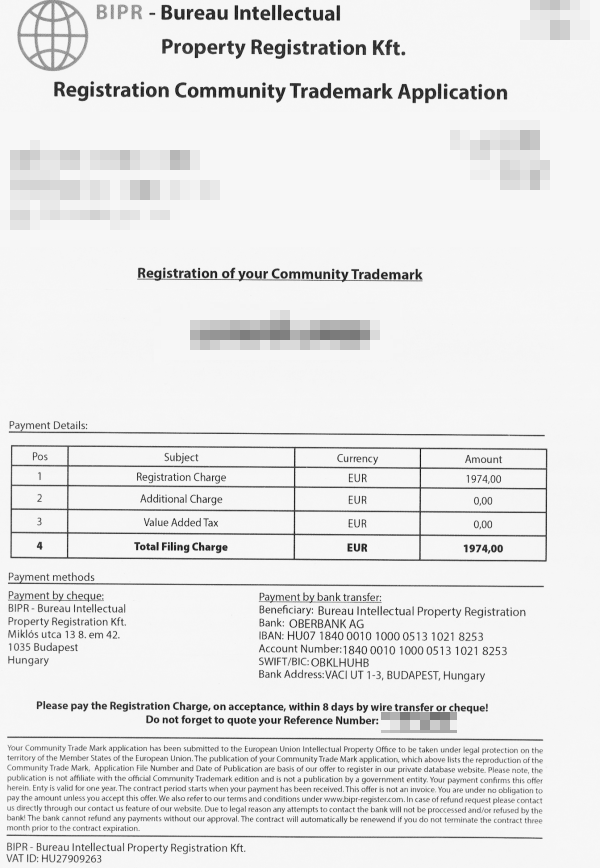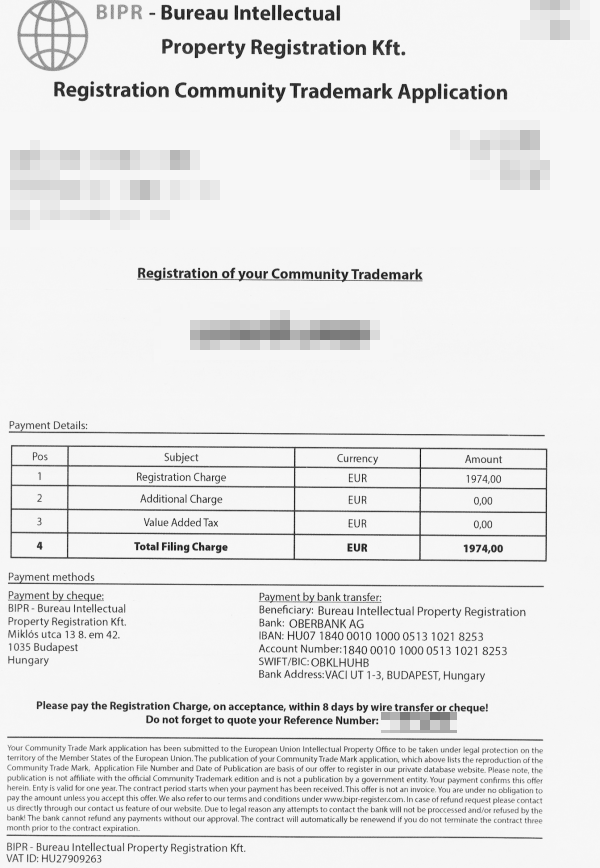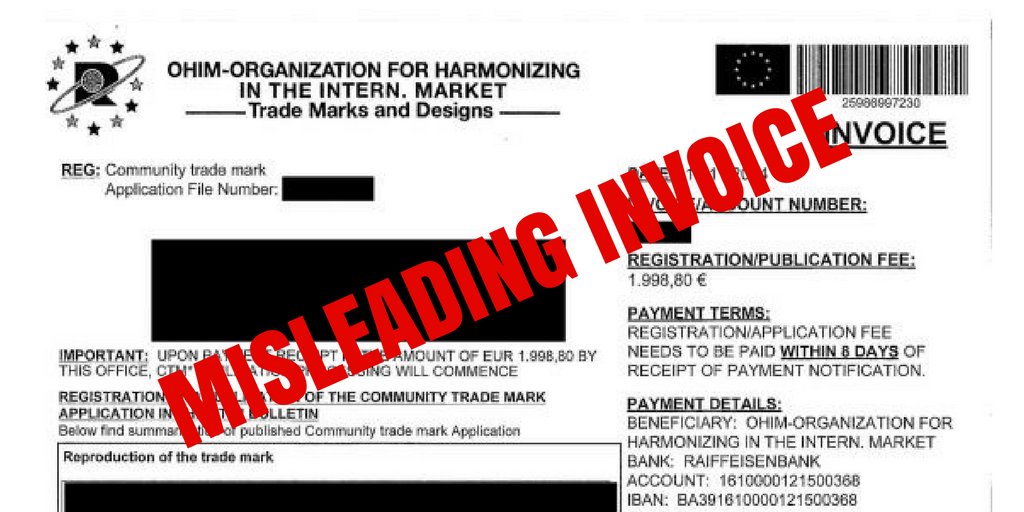Caution: Misleading bills
You have received invoices from third parties which relate to our services, such as applications for trademarks? Then there are likely to be misleading invoices or misleading contract offers.
On one hand, the Office is required to keep the correspondence addressed to you as your representative. If in such matters we do not receive letters addressed by us, you should pay more attention to them.
On the other hand, our services regularly already include all fees for the respective brands and / or patent offices, especially if you entrust us with the performance of services relating to a registration and / or a description of an industrial property right, such as a trademark or a registered design.
Invoices or requests for payment which you therefore receive from third parties with regard to the rights to which we are entrusted are, as a rule, misleading invoices, which are only intended to make you pay for non-monetary sums which you are not normally recovering.
Such misleading invoices are sent by a number of different companies which make use of the fact that industrial property rights must be published in an official register, with the full particulars of the owner's contact details.On the basis of publicly available data the misleading letters will be sent by these companies.
These letters look and usually read like official letters or invoices. Please, therefore, always check whether the letter you have received has a contractual basis. The examination must be done carefully, as the letters do not appear to be misleading at first sight.
As a rule, you will have a logo that is almost identical to the logo of the respective office. Similar sounding and officially used names as well as contact details are used, which correspond to those of the respective office.
The visual presentation of these letters and invoices is generally the same as the form used by the Office concerned. For further information and examples of misleading invoices, please visit the website of the relevant trademarks and patent offices. Here are some samples of misleading invoices









